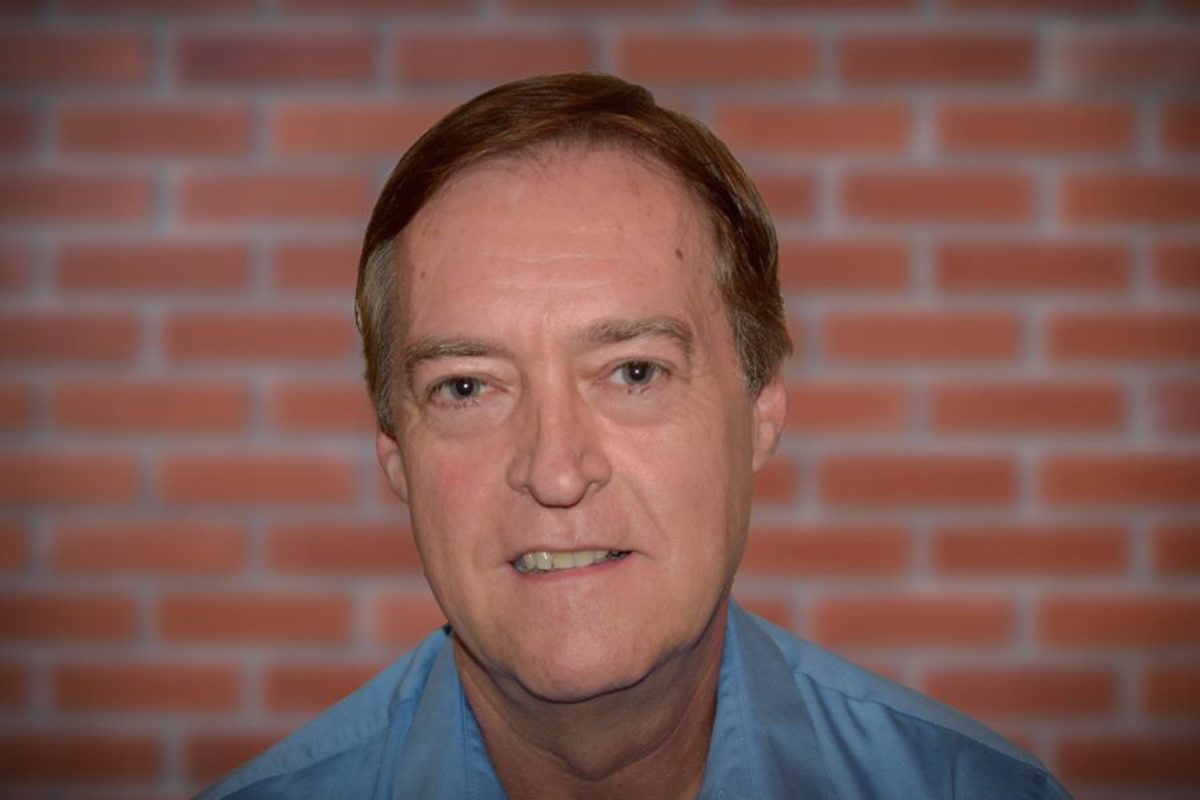
A Florida State University psychologist has earned a prestigious award from an international scientific society for his work on brain-based dysfunctions.
Distinguished Research Professor and Director of Clinical Training in FSU’s Department of Psychology Christopher J. Patrick received the 2023 Distinguished Contributions to Psychophysiology Award from the Society for Psychophysiological Research (SPR), the society’s highest honor. The award recognizes Patrick’s lifelong commitment to the study of brain and bodily processes in psychological phenomena, specifically how biobehavioral trait characteristics contribute to psychological disorders.
“This award is granted only to scholars who have contributed in major and enduring ways to this field of study,” he said. “Therefore, I feel incredibly privileged to be counted among the group of world-renowned researchers who have previously been recognized in this way.”
Since 1969, SPR has annually recognized one researcher from its worldwide membership who has made sustained distinguished contributions to psychophysiology throughout their career. Patrick is the first FSU faculty member to receive this award.
“Psychological problems such as depression, anxiety, violence and suicide affect most people in society, and underlying these problems are dysfunctions in cognition, or thinking, and emotion, or feeling, that involve the brain,” Patrick said. “My research seeks to understand brain-based dysfunctions that contribute to psychological disorders, with a focus on early emerging trait characteristics of people — including dispositional threat and reward sensitivity, inhibitory control and capacity for social bonding — that confer risk for, or immunity to, such problems.”
The study of these biobehavioral trait characteristics provides an effective way to understand societally significant problems like substance abuse and aggression in neuroscientific, genetic and developmental terms.
“[Patrick] leads our clinical area in the department, which is widely recognized as one of the top programs in the country, and his leadership has been instrumental in the continued success of faculty and graduate students in FSU’s clinical psychology program.”
– Department of Psychology Chair Brad Schmidt
In his most recent work, Patrick investigated how individual differences in threat sensitivity affect a person’s performance when engaged in cognitively demanding tasks, such as switching between response patterns, under fear-evoking conditions. This research has implications for selecting individuals who are best suited for demanding professional occupations including emergency responders and military special operations.
“Along with conducting lab studies, my research team at FSU has devoted considerable effort over the past decade to devising ways to measure biobehavioral trait characteristics in large-scale existing datasets from twin and longitudinal research projects,” Patrick said. “This work provides a pathway to understanding the causal role these biobehavioral traits play in dysfunctional thoughts and emotions that contribute to everyday problems as well as socially traumatic events such as school shootings and serial murder.”
Patrick earned his doctoral degree in psychology from the University of British Columbia in 1987 and completed further training as a postdoctoral fellow at the Center for Research in Psychophysiology at the University of Florida. He joined FSU’s faculty in 1990 as an assistant professor before relocating to the University of Minnesota in 1999 to serve as the university’s Starke R. Hathaway Distinguished Professor and Director of Clinical Training. Patrick returned to FSU in 2009. His research focuses on psychopathy, antisocial behavior, substance abuse, personality, fear and fearlessness, psychophysiology, and affective and cognitive neuroscience.
Having now served more than two decades in FSU’s Department of Psychology, Patrick remains inspired daily by mentoring graduate and undergraduate students and engaging with them around exciting ideas and creative research projects. He credits FSU as the launchpad for his career in clinical psychology and psychophysiology and considers it an ideal environment for attaining the heights of scholarly success.
“Dr. Patrick is a world leader in psychophysiology and has made numerous important contributions to the field throughout his career,” Department Chair Brad Schmidt said. “He leads our clinical area in the department, which is widely recognized as one of the top programs in the country, and his leadership has been instrumental in the continued success of faculty and graduate students in FSU’s clinical psychology program.”
This latest award adds to Patrick’s collection of accolades, including Distinguished Early Career Awards from SPR and the American Psychological Association, given in 1993 and 1995 respectively, and the Society for Scientific Study of Psychopathy’s Lifetime Achievement Award, presented in 2013. He has authored more than 360 peer-reviewed articles and book chapters, and his “Handbook of Psychopathy” is the field’s go-to reference for scientific and applied knowledge on the topic of psychopathic personality.
To learn more about Patrick’s work and psychology at FSU, visit psychology.fsu.edu.



